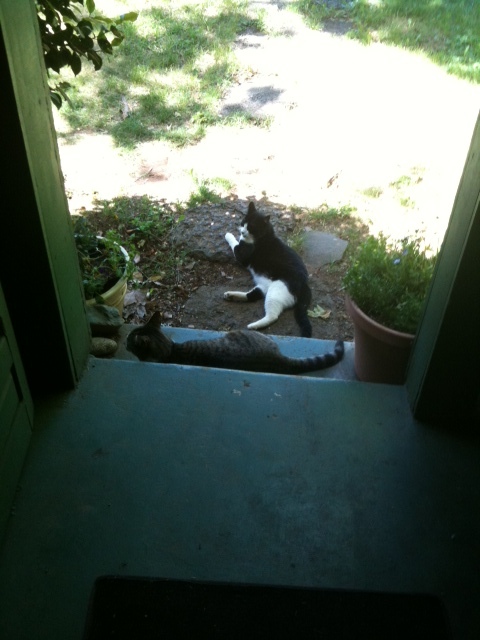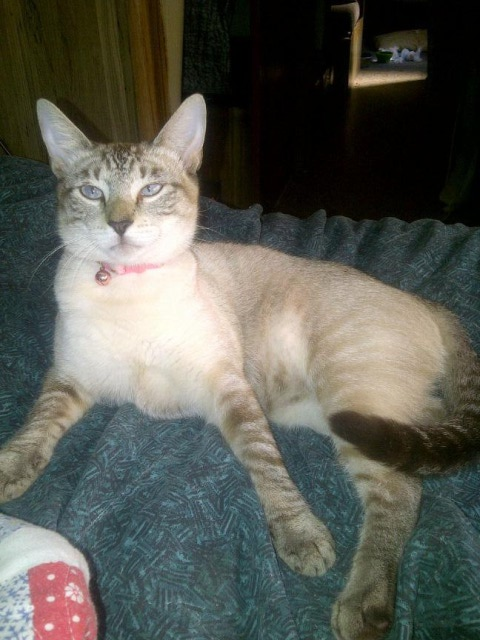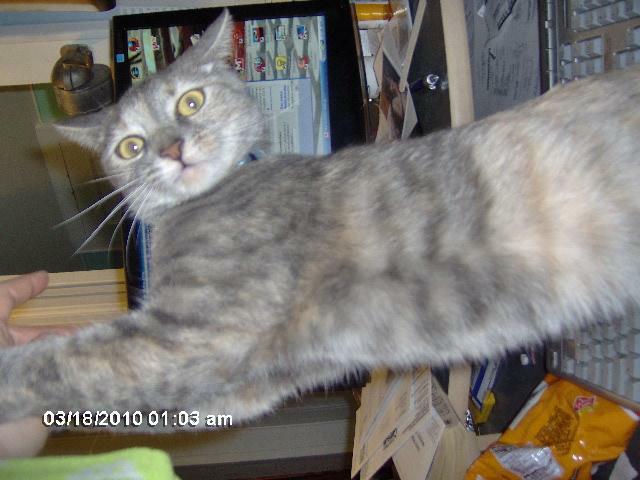QuestionI have been asked to adopt a kitten as a feral cat had a litter and no homes for all of them. I have agreed as I would like to have a pet to go home to. The mother of the kittens is a feral cat. The kittens are only a month old this weekend. From reading your site it is recommended that you do not take kittens away from the mother until they are at least six weeks old. I worked five days a week and gone pretty much most of the day. Should I keep him in the bathroom for a few days upon arrival at his new home? Any special preparations that I should do prior to bringing a kitten other than safe proofing my apartment. Also when shall I take him to the vet to be given shots and neutered. Should I be concerned with givng him special milk or food? What about baths for the kitten? I have not hat a pet kitten in over fifteen years so this will be like a new experience for me and I want to take all the necessary precautions needed.
AnswerHi Diane. The answer to this question really depends on the situation the kittens are in. If the kittens are in foster care and they are being socialized with humans each and every day, I actually don't recommend to separate them from their litter or mother until 12 weeks. Even six weeks is extremely young. Kittens who leave their mothers younger than 12 weeks are more likely to have diseases as young kittens (some of them fatal), chronic health problems for the rest of their lives, and behavioral problems.
However, if these kittens are living outdoors and are not receiving any human attention, it's a completely different story. You need to take the kitten away from the mother now. Even at 2 weeks old, a kitten will hiss and spit at people. They do not trust people by nature. They need human attention every day, preferably by the time they're 2-3 weeks old, to make good pets. Usually, if you catch them by 5 weeks (eyes are still blue), you can turn them into good house cats with lots of patience at the beginning. But if you wait until even 6-8 weeks, you will have wild kittens on your hands that may be difficult or impossible for the average person to socialize.
It isn't the ultimate thing to separate a month-old kitten from his mother or his litter. However, if you wait any longer, you're going to have a wild cat who is going to go on to produce more wild cats, and that's IF he survives to adulthood, which is a big if.
You should keep him in the bathroom at first, or a bedroom. They feel safer in small areas. If he's been living outside, he may need some litterbox training, so the bathroom may be the best place for him. Make sure to provide him with a heating pad on low heat, if he's under 8 weeks old, where he can snuggle if he gets cold. You can let him out of the bathroom after a couple days, or once he's litter trained.
He should be brought to the vet as soon as you get him to test for diseases (like feline leukemia and feline AIDS, although results may be false in kittens this young) and make sure he hasn't got parasites or deformities (hernias, etc.). When he should be vaccinated is controversial. Most vets agree that 8 weeks should be the age when he receives his first vaccinations. They can be neutered as tiny as 2 pounds. About 4 months old is what I personally recommend. Any longer and he may reach sexual maturity and start spraying.
If you end up taking this kitty before he is 12 weeks, then I do recommend that you offer him some warm kitten formula (not cow's milk) in a saucer. It's available at pet stores and vet offices. Growing kittens need the additional fats, proteins, and sugars that kitten formula provides.
I recommend feeding kittens only canned kitten food until 12 weeks. Otherwise, they may choke. Dry food can be added in at 12 weeks old.
I don't recommend to bathe cats. Their saliva contains a natural detergent to get rid of grease, and their tongues have barbs to get rid of dirt and hair. They only need bathing if they get into something they shouldn't, or if a medical condition makes it necessary. If he's got fleas, you can bathe him using Johnson's Baby Shampoo. Don't use a flea shampoo in young kittens unless a vet directs you to. Ultimately, though, tell the vet he has fleas and ask for the recommended treatment. A baby kitten who goes into a bath is at risk to get chilled, which can be deadly, so most vets recommend a spot-on flea treatment for young kittens.
Since you work long hours, I'd urge you to consider taking two kittens. Cats living with other cats are healthier mentally, behaviorally, physically, and emotionally. If he is alone too often, he may suffer from depression, may become obese, may engage in destructive behavior because of boredom, and may become sluggish mentally. It would be ideal to adopt two of them if you are able.

 2 sibling cats. one of the brothers just passed.
Question
Their last day togethe
how should i dea
2 sibling cats. one of the brothers just passed.
Question
Their last day togethe
how should i dea
 Siamese Cat Question
Question
Merlin
Hello, My cat snowshoe Siamese c
Siamese Cat Question
Question
Merlin
Hello, My cat snowshoe Siamese c
 shots/food
QuestionQUESTION: Teresa,
Silver is a wild kitten we he
shots/food
QuestionQUESTION: Teresa,
Silver is a wild kitten we he
 Short Tailed Manx Kitten
Question
Una Mica Una Mica
Hello,
I go
Short Tailed Manx Kitten
Question
Una Mica Una Mica
Hello,
I go
 my cat is REALLY long, like a weasel!
QuestionQUESTION: Im hoping you can help me identify my
my cat is REALLY long, like a weasel!
QuestionQUESTION: Im hoping you can help me identify my